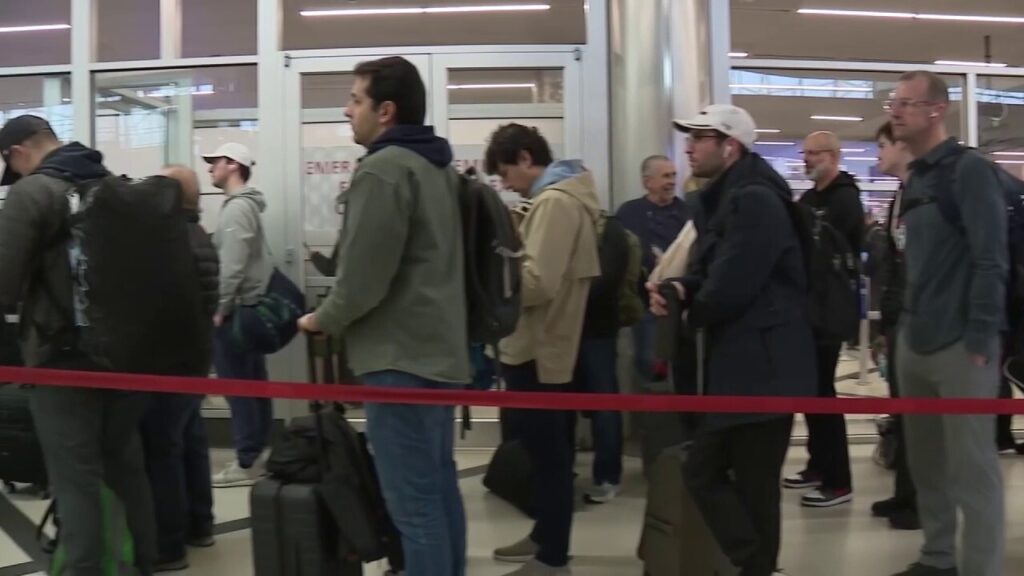The reopening of the world to travelers following the pandemic has been a complex journey marked by a series of evolving trends and demands. In 2020, travel was essentially halted for many Americans, with travel restrictions implemented that grounded flights, docked cruises, and suspended non-essential travel. As the situation began to improve over time, passengers slowly returned to the previously deserted airports, adapting to new norms such as social distancing measures, mask mandates, and dealing with staffing shortages. Now, as travel continues to rebound, insights from industry experts reveal significant shifts in the way people approach their travel plans.
Stacey Barber, the Vice President of Travel at AAA, notes, “What we’re seeing is people are taking the trip. They’re not postponing it. They’re not waiting for kids to be off school. And they’re not only taking one trip, they’re taking multiple trips.” This reflects a growing eagerness among travelers to enjoy experiences that were missed during the lockdown periods. One prominent trend emerging from this renewed enthusiasm for travel is that Americans are increasingly traveling year-round instead of confining their adventures to peak seasons. This change is largely facilitated by the flexibility afforded to many by remote work options. Barber points out, “They want to enjoy these beautiful destinations and activities and, you know, work from home. And that remote availability has really increased that opportunity.”
Additionally, tourists are also reevaluating their destination preferences, favoring locations that are less crowded, offering personalized experiences, and demonstrating an increased focus on mental health and well-being. As Starlight Williams, Digital Editor at National Geographic states, “Everyone is thinking about they’re stressed out, they’re tired, they’re burnt out. ‘How can I go travel and experience that I’m creating a healing moment?'” This evolving mindset has led travel providers to make adjustments and enhancements to better meet these new expectations.
As the industry adapts, suppliers are prioritizing health and safety measures to reassure travelers. Barber emphasizes, “Suppliers are really putting a strong emphasis on health. They’re putting it on cleaning, and they have great insurance opportunities available to help protect the consumers.” This aligns with the heightened awareness and priority placed on hygiene and safety in the wake of the pandemic, which has reshaped how travel experiences are marketed and delivered.
While the cruise industry faced substantial challenges during the pandemic, it has begun to recover remarkably well. Barber comments, “They were the last industry to really rebound from COVID. Post-pandemic, they are really creating an experience. They have enhanced their ships during COVID, creating more inventory as well.” This proactive approach demonstrates how the cruise industry is not just recovering but also evolving to provide more enriched travel experiences.
On the other hand, air travel has reportedly been slower to regain momentum. Williams points out that “the global airline capacity is only 2.4% above 2019 levels,” indicating the ongoing challenges related to aircraft shortages and a deficit in trained crew members. This lingering issue of staffing shortages affects airlines’ ability to increase their services, thus demonstrating the complexity of the industry’s recovery.
Despite these hurdles, industry experts consistently agree that travel is undergoing a transformation. Barber highlights the importance of technology in this evolution, suggesting that, “We’re going to start understanding how technology can help anticipate the needs of consumers better, how we can provide more time-saving services.” This inclination towards leveraging technology is set to redefine the travel experience in the years to come.
Looking ahead, Williams forecasts that “supersonic flights are going to make a full dramatic return,” and as global temperatures rise, “cold destinations are going to be the biggest trend, with global wellness going to go even more insane.” Such predictions illustrate an exciting, albeit unpredictable, future for travel.
Moreover, a notable potential shift is the resurgence of younger generations turning to travel agents for planning their trips. This could signify a renewed appreciation for expert guidance and personalized travel experiences, marking another evolution in the way travelers approach their adventures. Overall, the travel landscape is becoming increasingly dynamic, adapting to new consumer trends and preferences in a post-pandemic world.











